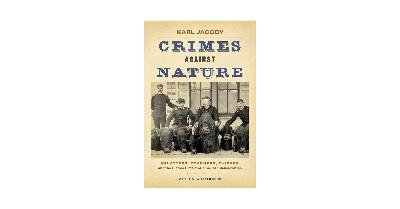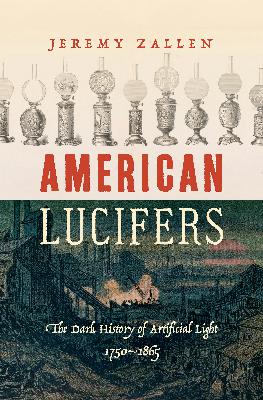Discover American Writers (One Hundred Pages at a Time)
American Writers (One Hundred Pages at a Time)

1053 Episodes
Reverse
In this episode I finish reading The Moral Economy of the Peasant by the brilliant James C. Scott. So what do you think of this book and its ongoing relevance?
I begin my deep dive into the works of James C. Scott with The Moral Economy of the Peasant. In this work, Scott explores the subsistence ethic and the consequences of it for peasant resistance. Is it just me or were lots of people writing about peasants in the 1970s and 1980s?
As we prepare for our deep dive into James C. Scott's work, we finish up with a related text, Karl Jacoby's Crimes Against Nature. This is one of the more fascinating looks at the history of conservation and helps us ask the question, for just who were the conservationists conserving, and did they do a better job that the people who made their living in spaced deemed "wilderness".
The conclusion to my review of TAMING MANHATTAN by Catherine McNeur. What can we learn from this book about making more environmentally sustainable cities? Will the drive to improve urban environments always lead to the class wars and conflicts discussed in this book?
Catherine McNeur writes a wonderful account of environmental conflicts and how they became class conflicts and fights over the boundaries between rural and urban in antebellum Manhattan. TAMING MANHATTAN is a great starting place for reading engaging and relevant environmental history,
The completion of my review of the lengthy but excellent book "The Republic of Nature" by Mark Fiege. Strongly recommended. What did you think?
Part three of my review of Mark Fiege's Republic of Nature covers a wide swap of American history in just a couple of chapters. One explores the environmental history of the transcontinental railroad and the other looks at Los Alamos and the scientists who developed the atomic bomb. While I may have wanted a bit more on industrial America, it is hard to fault a book this solid in its interpretive lens.
Part two of my review of Mark Fiege's excellent book The Republic of Nature. In this chapter we focus on the mid-nineteenth century with a chapter on the ecology of the cotton economy, the ecology of Lincoln's worldview, and the ecology of Gettysburg. What aspects of history do you think could we use to explore themes of environmental history?
The first part of my four episode review of Mark Fiege's excellent The Republic of Nature: An Environmental History of the United States. In the first two chapters we explore the environmental context of witch trials, religious dissent, the American Revolution, Monticello, and the Puritan encounter with indigenous people.
Part two of my review of Republican Reversal, a book exploring the fate of the Republican commitment to federal conservation laws. I found it pretty bleak, but maybe there is some hope. I do think the book needs an update to consider the last 8 years.
The first part of my review of The Republican Reversal: Conservatives and the Environment from Nixon to Trump. While this book is quite short, it is essential reading to understand the conservatives turn away from conservation. Some of the "whys" are obvious but quite a few are surprising.
In this episode I look at a sensory history of the American Civil War. It is a fascinating way to look at the past, but like so many sensory experiences, this one left me wanting more. What do you think of looking at the past through the realm of the senses?
The second part of my review of the excellent history book American Lucifers: The Dark History of Artificial Light. Who are today's Lucifers and is their story still dark?
To start this new phase of this podcast, I am reviewing one of the best history books I read in the past year, Jeremy Zallen's American Lucifers, a book about capitalism, labor, violence, and the environment and how they all interrelate. Let me know what you think of the ideas of the book and if you read the book, let me know what you think I got wrong.
The episode in which I explain where this podcast will go from here, so as not to overwhelm me and my capacities.
This is the first episode of my review of Robert Heinlein's longest work, NO TIME FOR LOVE. We are reintroduced to an old friend, Lazarus Long, as he reflects on his life (but maybe not enough reflection for this reader).
THE DEVIL FINDS WORK was James Baldwin's final major essay and a fascinating exploration of how he has seen and experienced American (and some non-American) films over the course of his life, finding the problem at the heart of America's major cultural export.
The finale of my review of I WILL FEAR NO EVIL by Robert A. Heinlein. Next up, NO TIME FOR LOVE.
Part three of my thoughts on I WILL FEAR NO EVIL by Robert A. Heinlein.
My quick review of James Baldwin's excellent essay NO NAME IN THE STREET. The last 20 pages of this essay are particularly hard hitting and remain meaningful.














